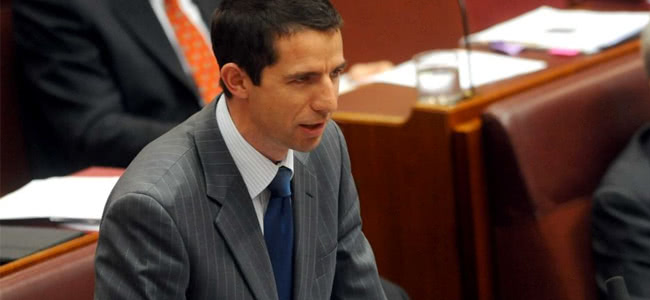As we’ve reported, Australia’s creative community is up in arms over comments made by Education Minister Simon Birmingham when announcing changes to the government’s VET Student Loans program, which saw hundreds of courses removed from eligibility.
The move, as we’ve noted, is actually a largely positive one. It’s part of the government’s bigger push towards penalising dodgy private colleges that bilk their students and taxpayers out of money using government subsidies and predatory enrolment practices.
However, many, including prominent members of Australia’s music community, feel Birmingham did not exercise propriety and tact when he described careers that are not, as he noted, of “high economic need, such as STEM skills or agricultural skills”, as “lifestyle choices“.
Illy, Tuka, Peking Duk, Gang of Youths, and Skegss are just some of the artists who’ve since spoken out, taking exception to the idea that any career that isn’t in engineering, computer science, or agriculture, i.e. the creative fields, is merely a “lifestyle” choice.
The Education Minister has now issued a statement clarifying his comments as well as the purpose of the amendments to the VET Student Loans program, reminding Australians that the purpose of the cuts is to streamline the program and ensure money isn’t simply going into the pockets of private colleges.
“Contrary to the impression given by some commentators, VET Student Loans will support studies across a number of different genres and roles related to the arts, including graphic design and visual arts, screen and media, live production, photography and music industry,” he writes.
The Minister explains that the cuts were introduced with a view to removing questionable courses like “veterinary Chinese herbal medicine” from VET eligibility and that the way the program was structured previously left students with “ballooning debt” they struggled to repay.
Love Skegss?
Get the latest Skegss news, features, updates and giveaways straight to your inbox Learn more
You can read the Minister’s full statement below.
Statement from Minister for Education and Training Simon Birmingham
In building the new VET Student Loans program from the ground up we’ve reviewed the more than 800 courses that were previously eligible for student loans against a range of criteria. The 347 courses selected clearly offered strong employment prospects by being on at least two ‘state skills needs’ lists and aligned with our national priorities in science, technology, engineering and mathematics and agriculture.
Of the 478 courses that will no longer be supported 119 are in management and commerce, 149 are society and culture courses like the Diploma of Life Coaching and 89 are in health-related fields such as veterinary Chinese herbal medicine. In comparison, 57 arts-related courses did not make our proposed list and 29 of those have no students at all and several others have been superseded by courses that will be supported by our new program.
Contrary to the impression given by some commentators, VET Student Loans will support studies across a number of different genres and roles related to the arts, including graphic design and visual arts, screen and media, live production, photography and music industry. Further, if other arts courses make their way onto the skills needs lists of different states then they can expect to be added to the courses eligible for VET Student Loans.
Most Australian taxpayers rightly expect that their support for student loans will go to courses that will help students get a job and ultimately earn enough money to repay what was lent to them. Unfortunately under VET FEE-HELP far too many students ended up with ballooning debt that will take them far too long to repay, if they ever do.
Of course the arts and creative industries make an incredible contribution to Australia’s society and economy – it’s why we have committed around $685 million to the sector over the coming year. It’s why the Government will continue to back a variety of Diplomas, Advanced Diplomas, Bachelor and post-graduate courses. We know there are job opportunities in the arts for current and future students – but the demand for graduates is not significant enough to justify funding every single arts course, just as it isn’t in many other industries.
I thank those who have taken the time to contact me about these changes and I hope we can continue the constructive conversation I have tried to lead as I consider their input and we implement this reform to ensure students and taxpayers are protected, skill shortages are addressed, and the reputation of the vocational education sector is restored.




































